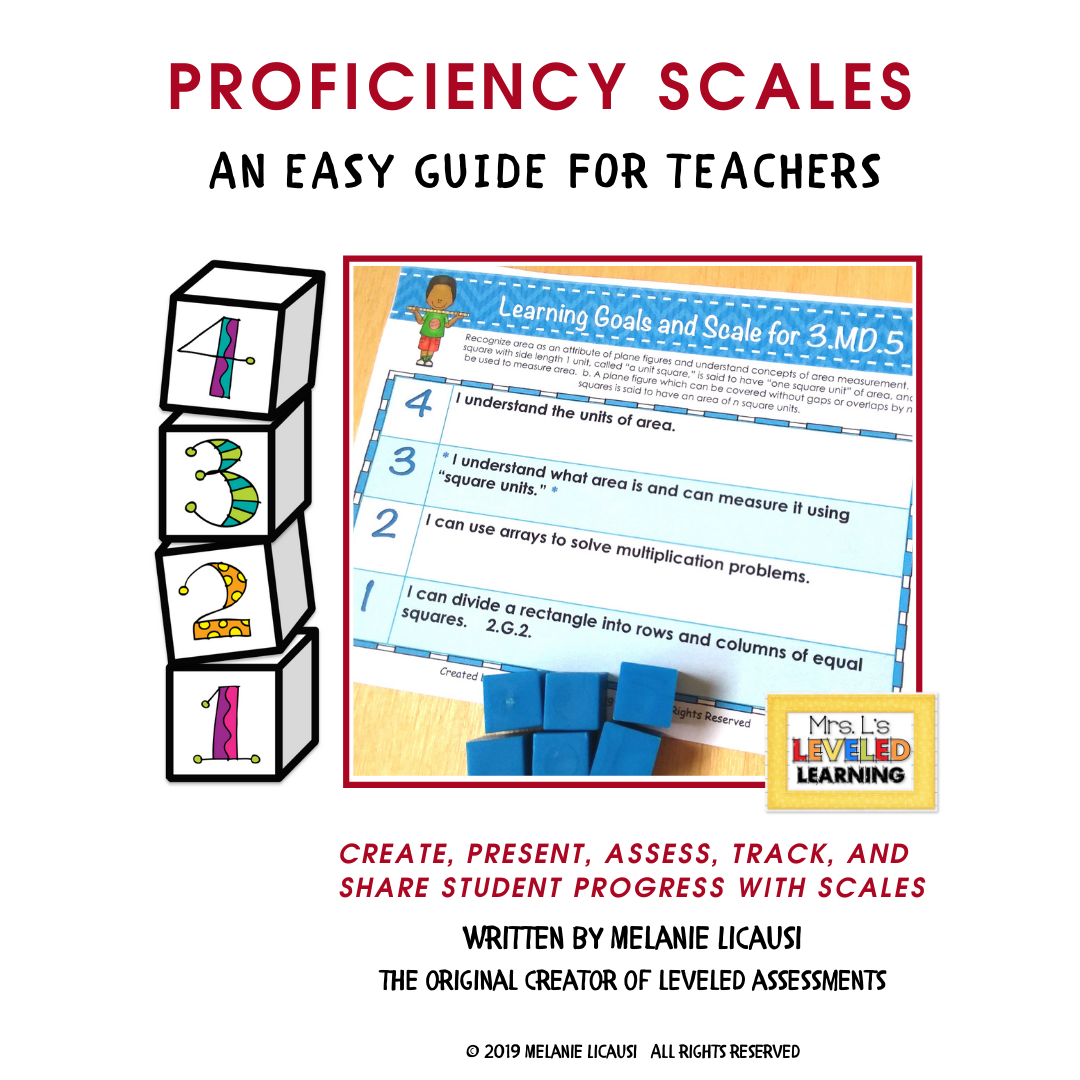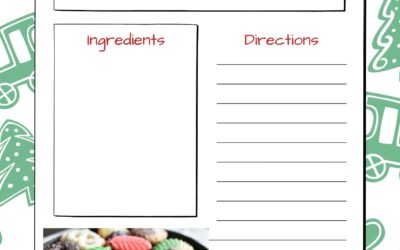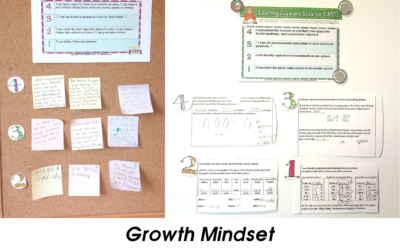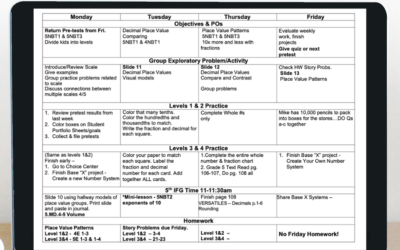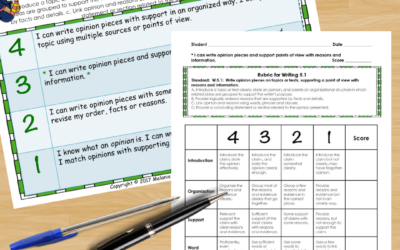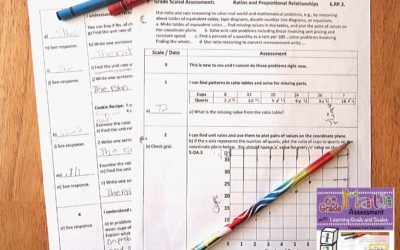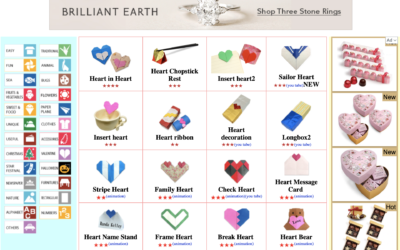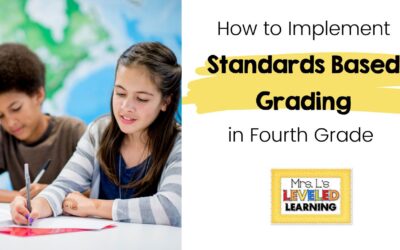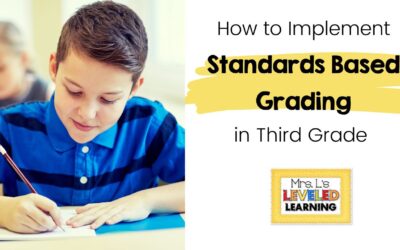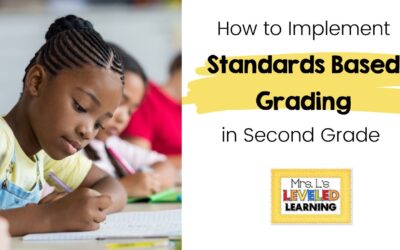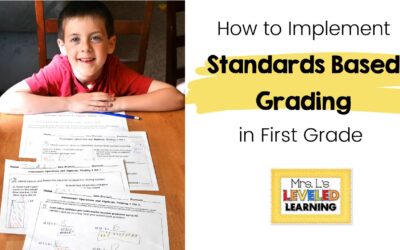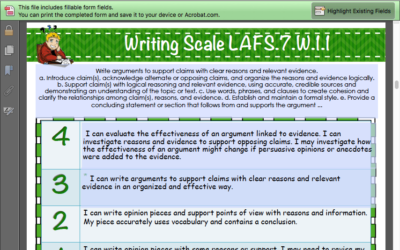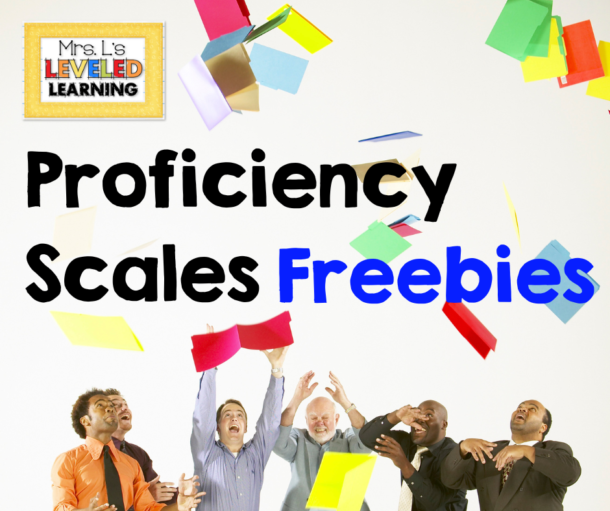Meet Melanie LiCausi
Melanie is the original creator of Leveled Assessments for Math and ELA. Leveled Assessments take Marzano’s research to a whole new LEVEL, by adding clear and objective tasks to proficiency scales. Melanie’s experience with differentiation comes from twelve years in the classroom teaching 1st grade, 2nd grade, 6-8 math, and several years of Gifted Resource in a multi-age classroom for grades 3-5. She has mastered the art of aligning content at multiple grade levels to give students a smooth and defined path for progress.

Need help Getting Started?
Melanie has written, taught and presented proficiency scales at multiple conferences. Walk through the process of creating, presenting, organizing, and assessing learning objectives in this EASY GUIDE to SCALES with TIME-SAVING tips from her own experience!
More Questions??? Contact melanie.licausi@mrslsleveledlearning.com


Mrs. L’s Blog
Fun Non-Fiction Writing Activity with Holiday Recipes!
Do you struggle to get your students into nonfiction writing? Recipes are one of those informational forms that is very specific and easy to imitate. Your students will get to explore the importance of descriptive titles, step by step instructions, appealing images, and accurate descriptions. I even include 4 sets of directions for differentiating the activity to the levels of a proficiency scale. This Holiday Recipe writing activity is one of my favorites because it is FUN and relies directly to the writing nonfiction standards. Read on to get a link to a free Holiday Writing Activity Template with ready to print directions! No Prep Required!!
Back to School Bulletin Board Ideas for a Growth Mindset
The greatest benefit of posting learning objectives is to increase student engagement! Post learning standards to create a VISUAL focus that students can refer to throughout a unit. Post learning goals to give your students access to the...
Ideas for Celebrating Student Success
In this post, we will examine Element 3 in Domain 1, which is all about ‘Celebrating Student Success.’ Below, you will find practical explanations of what is expected of you, and also a handy list of ways, that are both teacher and student-friendly, to celebrate student success. This is kind of a fun area of the Marzano platform to explore because, well, who doesn’t like celebrating and being recognized for a job well done!? After you’ve had a chance to look at the information below, let your imagination run wild
Proficiency Scales Simplify Differentiation in Elementary Classrooms
What are your beliefs about differentiation?
When you look at the diversity in your classroom, does it seem possible to reach every student? What if differentiation was just based on a naturally logical path of learning?
Start with background knowledge and end with opportunities for in-depth application.
I like to call this vertical differentiation. This means that students are working on the same topic or standard, at different levels of cognitive difficulty. If you are familiar with Blooms or Marzano Taxonomy of Higher Order Thinking skills, then you already have an idea of vertical differentiation.
Classroom Art and Science Activity for Halloween
Halloween is such a fun time to do special projects in your classroom. I am not one for wasting classroom time. I LOVE to find hands-on activities that integrate curriculum content! This idea combines the physical science concepts of light and shadows, with and an...
Assessment that Saves Classroom Time
Do you feel like WAY too much of your classroom time is spent completing standardized assessments? What if it were possible to develop an assessment that saves classroom time instead? Seriously! Read on to see the simple two-page leveled assessments that I’ve used to...
Ultimate Growth Mindset Tool for Standards Based Grading
Standards Based Grading is the Ultimate Growth Mindset Tool! A simple shift in focus. Students track mastery in the standards, instead of earning points toward a subject grade. Students are assessed according to their level of PROFICIENCY. Standards Based Grading can be more helpful in targeting student strengths and weaknesses. Teachers are able to plan more specifically, i.e. “DIFFERENTIATE”, to support students level of understanding. It gives teachers the feedback they need to modify instruction. It also tells students exactly what to work on next!
Rubrics verses Proficiency Scales
s the difference between a Rubric and a Proficiency Scale? In the examples below I’m going to share with you how each classroom tool can vary in structure and purpose. A rubric can look like a four-point scale with one crucial difference; a proficiency scale is focused on one learning objective. A rubric often includes a variety of skills that are related to different standards. Let’s look at some examples for elementary and middle school language arts and writing!
Distance Learning and the Homeschool Connection
Have you figured out what to work on with your child at home?
My name is Melanie LiCausi, and I am a mom of three, a classroom teacher, and trying out home-schooling for the very first time!
Having the unique experience of being on both sides of online learning has given me the chance to notice a few things.
Read on to see the simplest way to communicate your standards to students and parents in 4 easy steps!
Differentiate Eighth Grade Equations with Proficiency Scales
Proficiency Scales are all about helping students show growth in small steps instead of being overwhelmed by a year-end goal that seems way over their head. This video will walk you through one way to get your students understanding a scale. In this eighth grade equations and expressions standard, students must know and apply the properties of integer exponents to generate equivalent numerical expressions.
Valentine’s Day Origami Projects
Kids LOVE origami, at least my students always have. In an effort to get kids working together as a team, here is a fun way to assign groups and 'solidify' partnerships using one simple origami fold. Students can leave their group piece in a special place to indicate...
The Secret to Maximize Classroom Time – Emphasize Fewer Standards
Do you ever look at all your proficiency scales and feel overwhelmed? Not only do you have to cover 20-30 learning standards in each subject, but now you have 4 different levels to differentiate for? Did you know that you might get away with emphasizing just 5-6...
How to Implement Standards-Based Grading in a Fourth Grade Elementary Classroom
Adopting a standards-based grading approach and differentiation in fourth grade elementary classroom offers significant benefits; including clearer learning targets, fairer assessments, and personalized learning experiences. By developing clear rubrics, using formative assessments, and creating flexible grouping strategies, teachers can effectively implement standards-based grading to foster a growth mindset. Especially in first grade math and reading instruction, these strategies can transform the learning experience, ensuring that all students have the opportunity to develop cognitive skills from one manageable level to the next!
How to Implement Standards Based Grading in a Third Grade Elementary Classroom
Adopting a standards-based grading approach and differentiation in a third grade elementary classroom offers significant benefits; including clearer learning targets, fairer assessments, and personalized learning experiences. By developing clear rubrics, using formative assessments, and creating flexible grouping strategies, teachers can effectively implement standards-based grading to foster a growth mindset. Especially in first grade math and reading instruction, these strategies can transform the learning experience, ensuring that all students have the opportunity to develop cognitive skills from one manageable level to the next!
How to Implement Standards Based Grading in a Second Grade Elementary Classroom
Standards-based grading (SBG) and differentiation are transformative approaches in elementary education! They focus on fostering a growth mindset and enhancing cognitive skills by gradually moving students from background knowledge to mastery. First, instruction and...
How to Implement Standards Based Grading in a First Grade Classroom
Standards-based grading (SBG) and differentiation are transformative approaches in elementary education! They focus on fostering a growth mindset and enhancing cognitive skills by gradually moving students from background...
Top 3 Easy Ways to Create a Concise Homeschool Portfolio for Tracking Growth
Creating a homeschool work portfolio for your children is an excellent way to track progress, organize educational materials, and showcase accomplishments. With a well-structured portfolio, you can easily demonstrate your child's learning journey, whether it's for...
Write Your Own Marzano Scales Easily with Mrs. L’s Revised Posters
First of all, Thank you for the feedback! If you follow my work on Teacherspayteachers.com, or have personally contacted me about my work, then you already know that I take your suggestions seriously! I try to make revisions or meet requests as often as possible....




